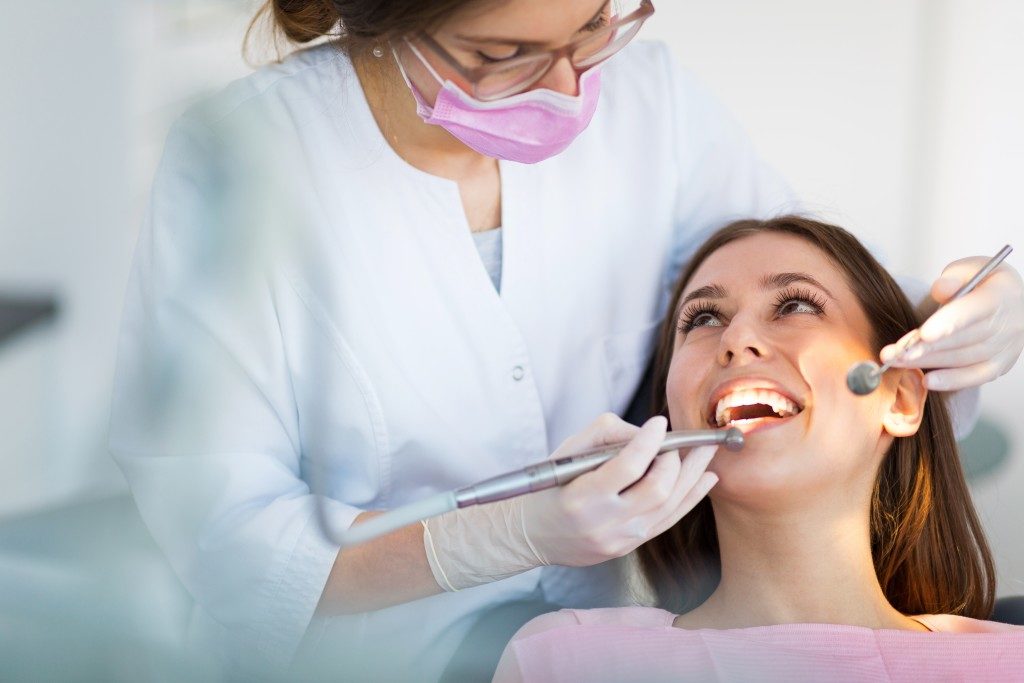Common knowledge says that brushing your teeth at least twice a day is enough to keep your teeth healthy and strong. There’s no need for fancy dental instruments and products, but that’s not really the case. While brushing your teeth is definitely on top of the list when it comes to dental health, dentists and experts will agree that you ought to be doing more than cleaning your teeth and mouth after every meal. Brushing your teeth is not enough to prevent and combat even the most common problems such as gingivitis and bad breath, or even provide sufficient protection against cavities.
Floss once a day
Flossing is one of the most effective ways to make sure that you get every tiny bit of food left between your teeth. This process involves taking floss—thin, cord-like filaments—and putting it between your teeth before pulling it gently back and forth to get rid of not just broccoli left from last night’s dinner but also of plaque, which is the main culprit behind tartar buildup and eventual gum disease. Unlike brushing your teeth, it’s not mandatory to floss after every meal; doing so even once a day should be enough. Simply pick a time when you feel like you can devote more time to your oral care. For example, if you need to rush every morning, flossing right before bedtime might be a good time for you. The important thing is to make sure that you do it consistently.
Use mouthwash to gargle
Gargling with plain, cold water is okay, but it can’t wash away all the food debris brought to the surface with brushing and flossing. Choose antiseptic mouthwash that does not only thoroughly cleanse your mouth but also washes away bacteria and acids. If you have sensitive teeth, be sure to choose one that is alcohol-free. Be wary of “cosmetic” rinses that only acts as a breath freshener. While this type has its own merits—a quick solution if you just had too much garlic during lunch—it doesn’t offer any long-term effects. Also, make sure that you gargle for at least 30 seconds to properly get rid of all unwanted plaque and bacteria.
Make regular dental appointments

No matter what state your teeth are in, regularly going for dental checkups is a definite must. No amount of at-home dental care can replace professional help when it comes to your health. Even though you religiously follow all dental care advice, there’s no helping it; plaque and tartar will still build up. If your teeth are relatively healthy, you might need to make annual visits only, with cleaning at least every six months.
Expect your dentist to give you a routine checkup that normally consists of an oral examination for decay detection, pocket measurements, and bite evaluation. It may also involve other processes that use dental instruments for scaling tartar off your teeth, polish your teeth to remove stains, replace enamel, and apply fluoride to strengthen your teeth. Screening for oral cancer may also take place during your dental checkup.


